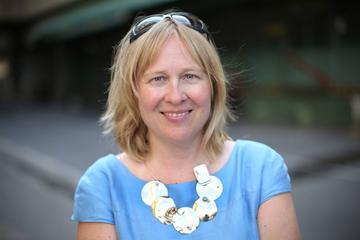
An interview to Sonja Merljak, reporter with the Slovenian daily ’Delo’
(Originally published by the European Center for Press and Media Freedom)
Does it surprise you that the law about access to public information in your country is among the best in the world?
It does not surprise me to learn that because by accident I just heard it a day before. I did not know that this was the case but the Commissioner for Public Information told me after we talked on Thursday and I mentioned my trip to Belgrade and the fact that the journalists there consider the ombudsman and the PIC among the few independent authorities that are helping them with their struggle. The Slovene law was the first and other laws were based on it. They are now even better because they could learn from Slovene mistakes.
Do you as an investigative journalist experience openness as a consequence of this law? Or is it just nice words on a sheet of paper?
It is not nice words on a sheet of paper, journalists are using the law very successfully. In fact, due to the use of the law, the government decided not to transcribe the audio tapes of the closed sessions of the government anymore. If there is no document, the public cannot demand it and the PIC cannot order the government to create it. The government says it is their right to do so as it is typical for other Nordic and Western states not to transcribe the audio tapes of the governmental meetings. The PIC thinks that this decision led to less transparency. In other cases, the law has been often and successfully applied.
Is there an efficient mechanism supporting you when authorities deny access?
Yes, the Public Information Commissioner as an independent authority is very helpful to journalists doing their job when it comes to the access to the public information.
Is the law controversial in national politics? Is there a stable majority supporting it?
No, it is not, there was in fact a huge majority supporting it in the parliament when the law passed.
Questa pubblicazione è stata prodotta nell'ambito del progetto European Centre for Press and Media Freedom, cofinanziato dalla Commissione europea. La responsabilità sui contenuti di questa pubblicazione è di Osservatorio Balcani e Caucaso e non riflette in alcun modo l'opinione dell'Unione Europea. Vai alla pagina del progetto

 Slovenia and the access to public information
Slovenia and the access to public information





 Tutti i contenuti disponibili sul sito di Osservatorio Balcani e Caucaso sono distribuiti con licenza
Tutti i contenuti disponibili sul sito di Osservatorio Balcani e Caucaso sono distribuiti con licenza 